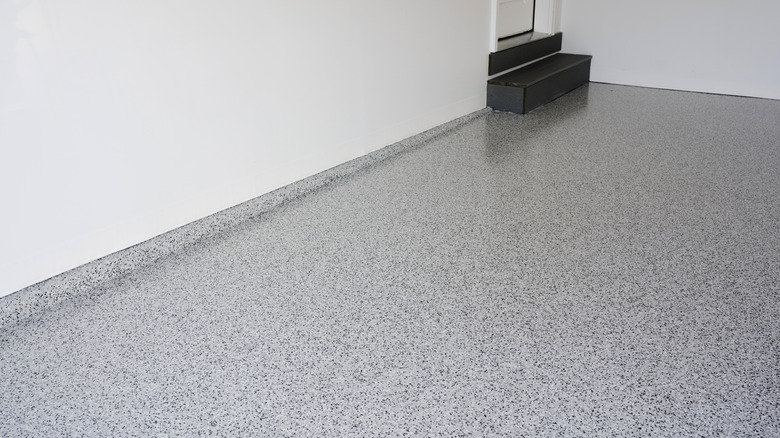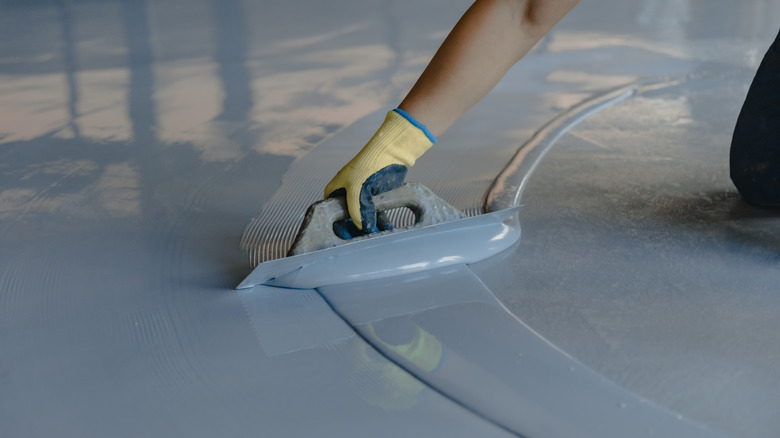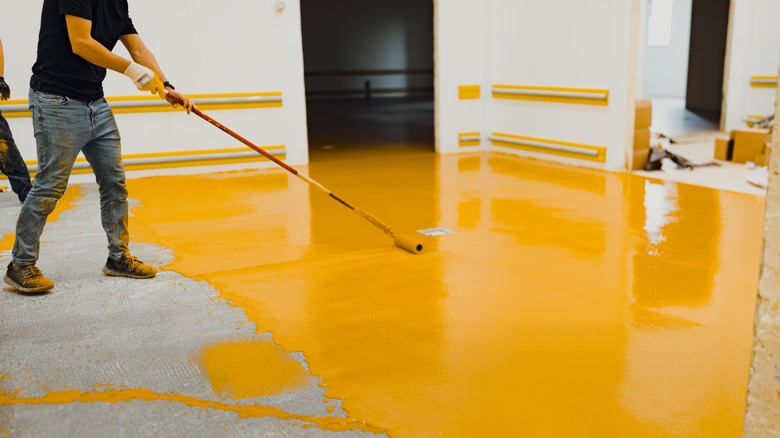The Different Types Of Sealants You Can Use On Concrete Floors In Your Garage
If you're looking for the perfect garage floor concrete sealant, you'll come across a variety of products, including some commonly used types like epoxy, acrylic, polyurethane, and penetrating sealants. But these aren't merely cosmetic solutions; they act as a critical protective layer that shields the concrete from an array of potential harms. This includes everything from common stains and minor cracks to more severe issues like weathering and impact damage.
But why is this necessary? Well, the life of a garage floor is fraught with challenges, many of which are often invisible to the naked eye. From the corrosive effects of chemical spills to the subtle, but relentless, wear and tear caused by the continual weight of vehicles, your garage floor is in a constant battle against degradation. These factors can accelerate the aging process of the concrete, leaving it susceptible to damage that can compromise its functionality and aesthetic.
Taking proactive steps to protect your garage floor can yield significant benefits. With the right sealant, you can enhance the floor's appearance while also improving its durability. As a result, your home's value may increase. That being said, choosing the right sealant can be challenging since there are many options available. How, then, can you filter through all of these choices to discover the most effective sealant for you? Use this as a guide to assist you in your decision process.
Acrylic and epoxy sealers: function meets aesthetics
If you want to inject some style into your garage's concrete floor while offering solid protection, acrylic and epoxy sealers are excellent options to consider. Acrylic sealers form a thin, protective layer on the surface of the concrete and are available in water and solvent-based formulations. They offer UV resistance and dry more quickly than other types of sealers. Furthermore, they come in various sheens, letting you select the gloss level that best suits your taste. The downside is that acrylic sealers usually don't last as long as epoxy ones. Because of this, you may have to repeat the application more often, which could raise the cost of long-term care.
Epoxy sealers, on the other hand, are recognized for their exceptional longevity and strong chemical resistance, which makes them a great option for garages that have numerous uses, like a workshop. These sealants provide a coating that is thicker on the surface, lending to improved defense against moisture, stains, abrasions, and even impacts. Another standout feature of epoxy sealers is their wide range of customization options, allowing for an elevated aesthetic appeal.
Yet, it's worth noting that epoxy sealers have some disadvantages. For one, they can turn yellow when exposed to prolonged periods of UV light. Additionally, epoxy sealers come with a higher upfront cost compared to other options, but many homeowners find this to be a worthwhile investment given the winning combination of style potential and high functionality they deliver.
Penetrating and polyurethane sealers: deep protection for long-term benefits
If you're leaning towards a more natural look for your garage's concrete floor, penetrating sealers could be your ideal choice. These sealers delve deep into the concrete's structure, sealing its pores and establishing a chemical barrier against moisture and stains. Composed chiefly of silicates, siliconates, and silanes, these sealers are generally breathable, which allows any trapped moisture to escape. This unique feature minimizes issues like efflorescence and reduces the risk of water damage over time, thereby enhancing your floor's longevity. That being said, it's important to note that penetrating sealers might not offer you the same aesthetic customization as other sealant types. While they protect profoundly, they don't allow for the high-gloss finish or color enhancement you might seek.
On the flip side, if you aim for a glossy look and substantial protection, polyurethane sealants have much to offer. Known for their exceptional resistance to abrasion and chemicals, these sealants are well-suited for high-traffic or multi-functional garages. The high-gloss option, available in polyurethane sealants, add a sheen to your concrete, enhancing its visual appeal. However, these advantages come at a price — polyurethane sealants are typically more expensive than their acrylic counterparts. They also often necessitate a more complicated application process, which is why they are sometimes used as a topcoat over epoxy sealers. As, unlike epoxy, which bonds directly with the concrete, polyurethane forms a layer on top.



